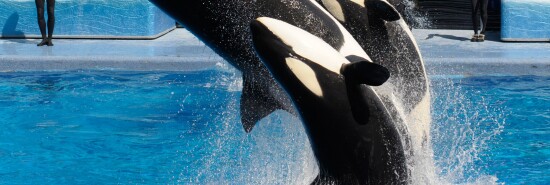
Unlike in Free Willy, tamed animal releases don’t have Hollywood endings
Will Coggin
Video Embed
Animal rights activists rejoiced last week when the Miami Seaquarium, a marine park, announced it would release its orca to a sea pen off the coast of Washington state. But unlike Free Willy, this story is unlikely to have a Hollywood ending.
Animal rights activists, who generally oppose zoos and aquariums, have argued that animals such as orcas should be released to the wild — or at a minimum, to an enclosure away from the public that functions like a halfway house. It’s an appealing sentiment that tugs at the heartstrings. But the challenges are immense.
THE SUPER MARIO BROS. MOVIE’S INVISIBLE WOKENESS
Putting an orca back into the wild has been attempted once before. The 1993 movie Free Willy inspired animal activists to seek the return of Keiko, the whale featured in the movie, to the North Atlantic, where he had been taken in 1979.
Activist efforts were successful. Millions of dollars were raised, and Keiko was moved from a marine park in Mexico to an aquarium in Oregon for preparation. After two years, he was airlifted to Iceland in a military plane and put in a sea pen — later to be released into the open ocean.
Unfortunately, Keiko didn’t do well in his new environment. He never joined a wild orca pod and continually sought humans. After all, humans had showered him with attention and food for years. As a result, Keiko sadly died in a remote cove in Norway from pneumonia. His release was widely recognized as a failure.
Nature is not Disney. Transplanting an animal from a zoo or aquarium into the wild is like abandoning your dog in Yellowstone Park. It’s not equipped to survive.
And although seaside pens are similar to living in an aquarium or marine park where animals are monitored and fed by people, there are additional challenges for animal welfare. For one, the water is not filtered. Oil from boats, sewage, chemical runoff, and other pollution can flow into pens. So can pathogens to which whales and dolphins don’t have immunity.
The nets of these pens can also easily tear, providing an opening for the animals to leave — or for other animals to come in. It’s a strategy that needs to be revisited.
“Blindly releasing killer whales to the wild is irresponsible and dangerous,” said Mark Simmons, a marine mammal expert who worked on Keiko’s release and authored the book Killing Keiko.
Activists who favor releasing animals from human care often note that orcas can swim hundreds of miles a day in the wild, or that elephants might walk dozens of miles a day — distances they can’t cover in a marine facility or a zoo. This is used as evidence that zoological facilities can’t meet animals’ needs.
But in fact, it’s proof of the opposite. Animals in the wild move huge distances because they are searching for scarce food or avoiding predators. If you weren’t living in modern America, you also might walk miles and miles every day to get food and water — behavior akin to our hunter-gatherer ancestors.
Just like modern living provides for people, animals in human care don’t face the same pressures they would in the wild. They have all the food they need, as well as shelter, protection from other animals, and constant attention and care.
And as Keiko showed, they grow to love and rely on it.
Animal rights activists who want to liberate animals from zoos and aquariums are blinded by an ideological belief that “wild animals belong in the wild.” They miss the bigger picture: Animals in zoos and aquariums aren’t wild any more than your pet cat is.
Zoos and aquariums no longer capture animals from the wild. Instead, they use breeding programs, which also provide for a safe population of species that are near extinction in the wild. Down the road, newborns from these programs could be reintroduced to oceans, jungles, and other wild habitats.
CLICK HERE TO READ MORE FROM THE WASHINGTON EXAMINER
Compared to radical animal rights activists, zookeepers, trainers, veterinarians, technicians, and others who directly care for animals are more credible animal advocates. They provide five-star care for animals under their supervision. And the benefits of zoos in providing education and conservation are well-established.
If you were a whale or dolphin that has come to call an aquatic park home, wouldn’t you rather retire in Miami?
Will Coggin is managing director of Humane Watch.
